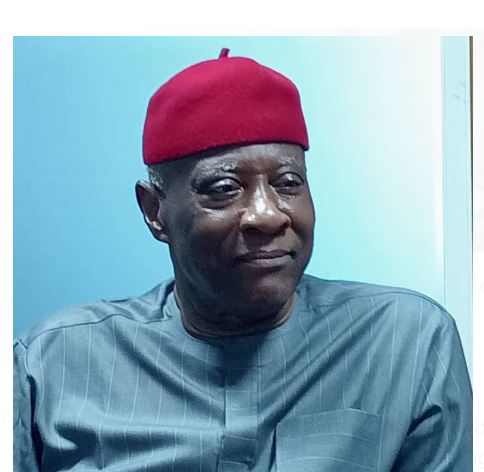


Published on: April 3, 2025
Content:

By Juliet Umeh
Since 1999, political leadership in Imo State has been dominated by the Orlu zone, leading many to question the fairness of the state’s governance structure. Amid this discourse, a movement known as the Imo Harmony Project (IHP) is advocating for a more equitable political landscape. At the forefront of this movement is Captain Emmanuel Iheanacho, an accomplished entrepreneur in the shipping and oil and gas industries, as well as a former Federal Minister of Interior.
Captain Iheanacho, who hails from Imo State, is championing fairness in the state’s political leadership. His argument is simple yet powerful: governance should be inclusive, with power rotating among the three geopolitical zones of Imo State—Orlu, Owerri, and Okigwe.
Since the return to civilian rule in 1999, the Orlu zone has maintained a stronghold on the governorship, with the exception of a brief seven-month tenure by Emeka Ihedioha of Owerri. By the end of Governor Hope Uzodinma’s second term, Orlu would have governed the state for 24 years, while Okigwe had its turn with Ikedi Ohakim serving a single four-year term. Against this backdrop, IHP is calling for a fair power shift to the Owerri zone in 2027.
During a recent interview, Captain Iheanacho passionately articulated the rationale behind IHP’s advocacy:
“The principle of rotation ensures that everyone has a fair opportunity to govern. This is not just an Imo issue—it is a widely accepted practice across Nigeria,” he stated.
Despite sharing the same ethnic background and language, Imo State’s zoning system was designed for administrative convenience and to ensure balanced development. Iheanacho highlighted that other states have implemented similar power-sharing mechanisms, yet Imo remains an exception, leading to a sense of marginalization among some communities.
Critics have speculated that Captain Iheanacho’s involvement in IHP is a strategic move to advance his own political career. However, he refuted such claims, emphasizing that his focus is solely on the broader cause of fairness and equity.
“I contested in 2015 but did not run in 2019, which should indicate that my focus is not solely on personal political aspirations,” he asserted. “If, in 2027, the people insist that I should lead, then I would have to consider it. However, my work with IHP is not about personal ambition.”
Understanding that political success requires collaboration, IHP has actively engaged stakeholders from Orlu and Okigwe. According to Iheanacho, the movement has held productive discussions with traditional and political leaders from these zones, emphasizing a peaceful approach.
“We are not protesting but engaging in dialogue as brothers,” he explained. “Many leaders acknowledge the fairness of our position and are open to discussions.”
On the current administration, Captain Iheanacho commended Governor Hope Uzodinma’s infrastructural efforts, particularly in road construction. However, he emphasized the need for a stronger economic focus.
“My advice to him would be to develop Imo’s economy by revitalizing industrial areas and attracting investors. This would create jobs and increase purchasing power,” he noted.
Beyond state politics, Iheanacho envisions a Nigeria that is self-reliant and fully harnesses its natural resources.
“We have had oil since the 1950s, yet we still depend on foreign entities to extract, refine, and resell our own resources. The Nigeria of my dreams is one where we fully control our resources and reinvest our wealth into programs that improve lives.”
Recognizing the importance of youth engagement, Iheanacho stressed the need for structured programs to equip young people with relevant skills. “The key is defining what we want to produce and determining the skills required for these industries,” he explained. “We must align our education system accordingly.”
As 2027 approaches, the Imo Harmony Project remains steadfast in its mission to ensure that the next governor of Imo State comes from the Owerri zone. Through peaceful advocacy, strategic engagement, and a commitment to fairness, IHP is shaping the discourse on equitable governance in Imo.
Whether the movement will succeed in breaking the long-standing political dominance of the Orlu zone remains to be seen. However, one thing is certain: the conversation about inclusive leadership in Imo State is gaining momentum, and Captain Emmanuel Iheanacho is determined to see it through.
The post Imo 2027: Why it’s the turn of Owerri zone – IHP appeared first on Vanguard News.